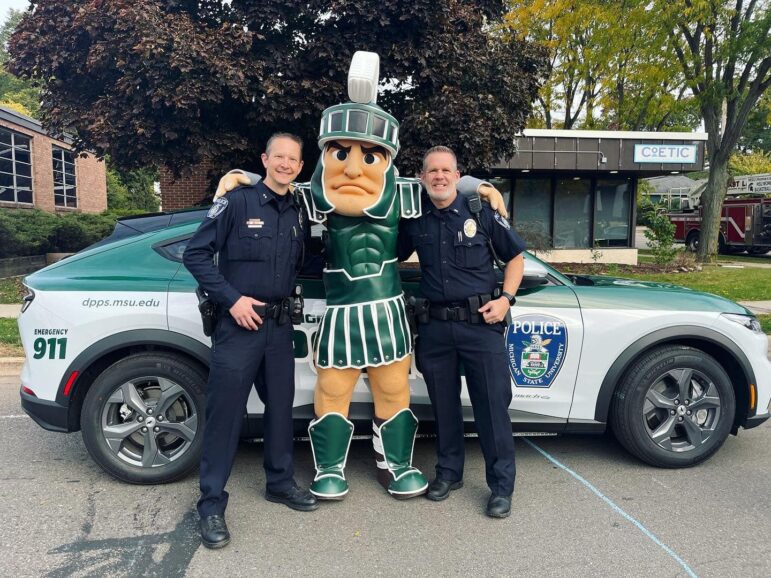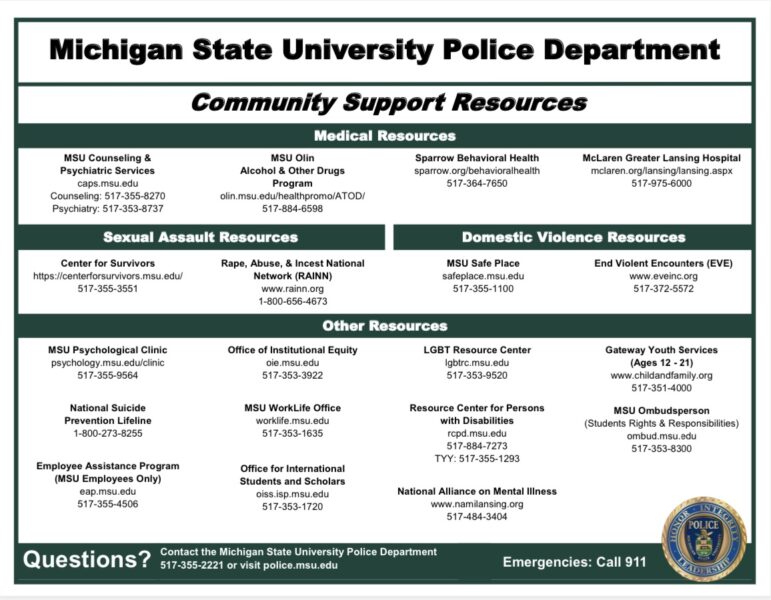
Red and blue flashing lights can be seen most every weekend on Michigan State’s campus. It’s the Michigan State University Department of Police and Public Safety on the job. Although students can be hesitant about police, the department would like students to know that officers are here to help.
Det. David Isabell, an investigator in the Community Care Unit, said, “We care about each individual student in our community. We want to change the stigma that only broken people seek help.”
Community Care Unit members assist when mental health crises occur. The department also recently hired a social worker.
Communications Manager Dana Whyte said, “If we were to receive any mental health calls or emergencies it would go to the Community Care Unit and they’re trauma informed and trained,” she said. “So that they are able to speak with these students and provide resources in a caring manner and just with the name Community Care Unit, we want students to know that we’re here to help.”
Det. Isabell says a high number of the “soft reachouts,” emails sent to students that include mental health resources both on and off campus, never receive a response.
“We want to supply the students of concern with the resources and empower them to do what’s in their best interest,” he said.
Another unique thing about the MSU Department of Police and Public Safety is that all officers have four-year degrees. Some even attended MSU.

Danial Munford, captain of the Community Engagement Unit, said “I feel that having gone through the college experience that the officers are more empathic to what a student may be going through. The educational process is not easy to navigate for students and having the knowledge of attending a university and working at an institute of higher education allows us to have a better understanding of some conflicts that our students might be going through.”
Munford chooses not to wear a police uniform at events that don’t require him to and interacts with the community at various events the department holds. He says it makes him more approachable to students.
Another way the department seeks to make an impact is by joining the 30×30 Initiative. This seeks to increase female representation in police departments from 12% to 30% by the year 2030.
Whyte said, “We’ve already reached that goal, but there are further goals within the initiative just to help advance women in the department. So even though you might have 30% female officers, now we want to work towards having those female officers in leadership positions.”
Munford said, “The MSU DPPS officers are a resource for all of our students, faculty and staff. We offer many services to our students and engagement opportunities.”
Whyte said that she noticed how the department is willing to listen to community members and hear what concerns and proposals they have.
“The reason we launched the Safe MSU app was because that’s what our community said they wanted,” she said.
Mental health resources can be found on the MSU Police Department website. Safe MSU App is available for download on the App Store and Google Play.